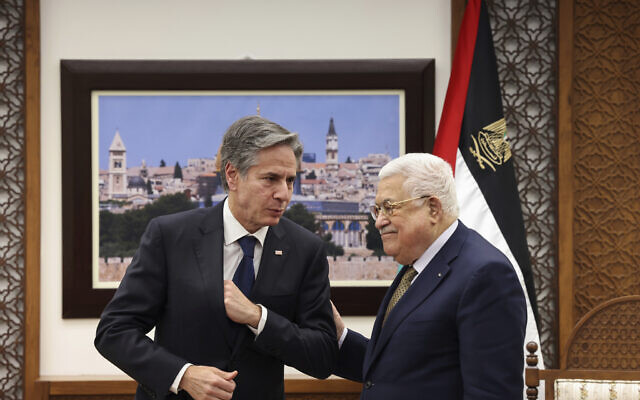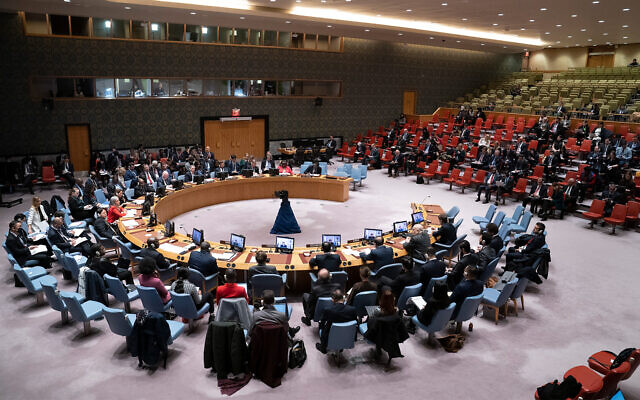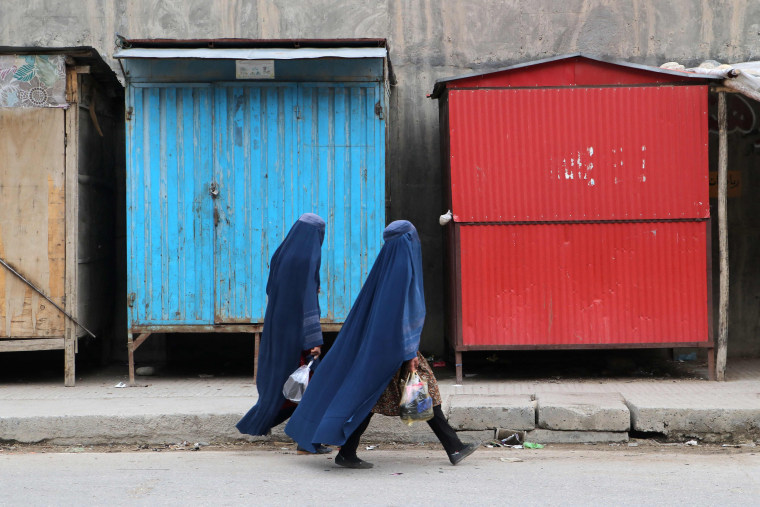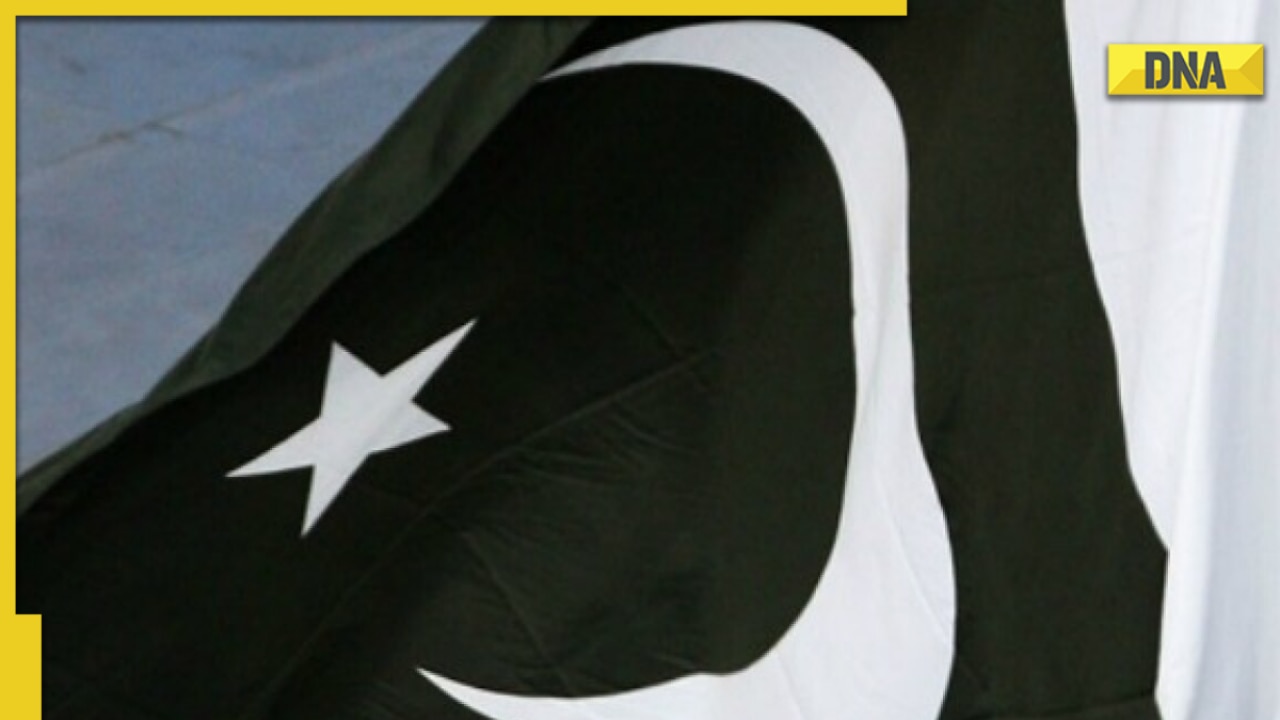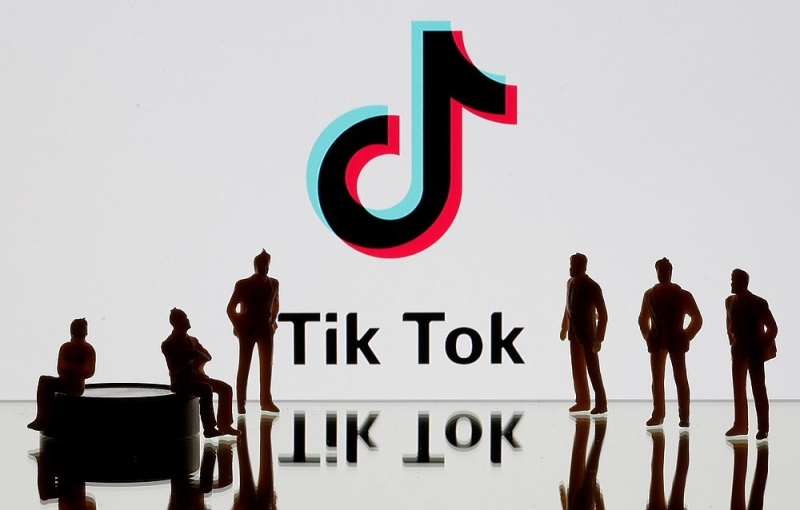[Twitter/Ghada Oueiss]
The prominent anchor was the target of a hack and leak campaign at the height of a major diplomatic rift in 2017 that shook the Gulf Cooperation Council.
Saudi and Emirati backed “digital mercenaries” may have been behind online attacks on senior Al Jazeera anchor Ghada Oueiss, a new Forbidden Stories investigation found.
Published on Thursday, the investigation is part of the non-profit’s six month long “Story Killers” project, which delves into global foreign-funded attacks against journalists.
The project analysed cases of more than 100 journalists from 30 outlets.
In its most recent finding, Forbidden Stories looked into Florida resident Sharon Van Rider, who has been at the forefront of a campaign targeting Oueiss, and found possible foreign backing.
Under FARA, anyone in the US is required to inform the Department of Justice of any move that involves influencing American opinion for a foreign official. Failure to notify legal entities can lead to fines and imprisonments.
The latest investigation echoes findings of a previous probe conducted by Die Zeit, which also found that Van Rider was paid for her pro-Saudi tweets.
The “digital mercenary” had also met with Sattam bin Khalid Al Saud, a Saudi prince, in Dubai in 2019 at the Billionaire Club.
During the same year, she attended another meeting in Miami where Al Saud reportedly paid her approximately $175,000 in cash through an agent, an American closely linked to right-wing circles.
In 2020, Van Rider retweeted a personal photo of Oueiss by hacking her phone. The move prompted thousands of “misogynistic insults” by social media users with Saudi links.
The Forbidden Stories report cited a FBI investigation into Van Rider’s activities that was launched to decipher whether she violated US law.
“In a 2022 deposition before German lawyers, Van Rider said she was paid by an intermediary on behalf of Al Saud to circumvent the Foreign Agents Registration Act (FARA),” the Forbidden Stories report said.
The meeting with the Saudi prince took place at a time of heightened tensions in the GCC that were a result of an illegal air, land and sea blockade imposed on Qatar by Saudi Arabia, the United Arab Emirates, Bahrain, and Egypt in 2017.
The blockading quartet at the time waged an all out campaign against Qatar as well as all entities connected to Doha, chief of which was Al Jazeera. The network was listed on a document detailing demands by the quartet to lift the blockade.
Among the claims levelled at Oueiss by Van Rider were ludicrous allegations such as she “sold [herself] to terrorists to get a story”.
Al Jazeera journalist files lawsuit against Saudi, UAE crown princes
“It was weird that an American citizen, who does not speak Arabic…who does not know me… tweets about me day and night,” Oueiss told Forbidden Stories.
The new investigation also found that Van Rider was paid by a Lebanese intermediary who also had ties to Saudi Arabia.
“For me, [Van Rider] was not the real problem. The real problem was people who would pay her to do that, because if it wasn’t her, it would be anyone else,” Oueiss said.
Commenting on the harassment, Marc Owen Jones, an associate professor of Middle East Studies at Hamad bin Khalifa University in Qatar, said the attacks against Oueiss were “poorly executed”.
“From a disinformation point of view, it’s one thing to use bots and trolls, but if you can organically have Americans absorbing Saudi talking points, then replicating those talking points in their own social media networks, then in theory, those talking points could then go viral amongst the Republican community online,” Jones noted.
In 2020, Oueiss filed a lawsuit against Saudi Crown Prince Mohammed bin Salman and the UAE’s Crown Prince Mohammed Bin Zayed for reportedly targeting her in a hack and leak operation.
Oueiss’ lawsuits names Florida-based Sharon Collins and Hussam Al-Jundi, who are accused of publishing “stolen information” from the Al Jazeera anchor’s phone and who the lawyers say “participated in a conspiracy against the journalist”.
‘A new way to kill journalists’
Online attacks against the prominent Al Jazeera anchor intensified after she began reporting on the killing of late Saudi journalist Jamal Khashoggi in 2018.
“It’s a new way to kill journalists virtually, silencing them. Instead of paying someone to assassinate you physically, you pay someone to assassinate you virtually through social media. You kill the character,” Oueiss said of the online hate campaigns.
“Instead of killing the body you kill the words, you kill the questions,” she added.
According to Forbidden Stories, the 2019 meeting in Dubai also involved a representative for Saud al Qahtani, an MBS aide who allegedly oversaw Khashoggi’s murder. Attendees at the meeting reportedly discussed ways to discredit Oueiss while requesting UAE-based company, DarkMatter, to hack her phone.
Speaking to Forbidden Stories, Karim Michel Sabbagh, then CEO of DarkMatter, dismissed involvement in the hack while Al Saud said the matter was not discussed in the meeting.
Another name that came up in the investigation is Jerry Maher, former presenter for a Saudi TV channel, who transferred at least four $2,500 installments to Van Rider between November 2019 and March 2020.
Maher is also a media advisor to Saudi-Lebanese billionaire Bahaa Hariri, who is also close to the Saudi government. Hariri is the son of late Lebanese Prime Minister Rafic Hariri.
“Al Saud told Forbidden Stories he did not pay Van Rider and said Maher, a friend, did not work for him. Maher said he did not recall the transfers and did not pay Van Rider on behalf of Al Saud,” the report added.
Meanwhile, the prove also pointed to a chilling tweet by Maher published at the height of the Khashoggi murder, in which he said those probing the crime would “burn in hell.”
“In January 2019, in a tweet that gained over a thousand retweets and likes, Maher attacked Jeff Bezos, Amazon founder and Washington Post owner, writing, ‘If you make yourself an enemy of Saudi Arabia, you will be destroyed, disparaged and terminated by God’,” the report said.
Notably, Maher, who faced legal consequences in Sweden and reportedly in Lebanon, was a guest on Al Jazeera in 2019 per an invitation by Oueiss herself.
The anchor said Maher had told her backstage that he believed MBS ordered the murder, though he denied making those claims.
“He is capable of being the mouthpiece of a dictatorship. He is capable of doing anything for you if you pay him,” she said.
Another name raised in Van Rider’s deposition was Maria Maalouf, a Washington, DC-based journalist of Lebanese origin. The attacker said Maaloud was part of the so-called “media project” attacking Oueiss.
“Neither Maalouf nor Prolific Solutions appear in the US government’s FARA registry, suggesting a possible violation of federal laws,” the report said.
The prominent anchor was the target of a hack and leak campaign at the height of a major diplomatic rift in 2017 that shook the Gulf Cooperation Council.
Saudi and Emirati backed “digital mercenaries” may have been behind online attacks on senior Al Jazeera anchor Ghada Oueiss, a new Forbidden Stories investigation found.
Published on Thursday, the investigation is part of the non-profit’s six month long “Story Killers” project, which delves into global foreign-funded attacks against journalists.
The project analysed cases of more than 100 journalists from 30 outlets.
In its most recent finding, Forbidden Stories looked into Florida resident Sharon Van Rider, who has been at the forefront of a campaign targeting Oueiss, and found possible foreign backing.
Under FARA, anyone in the US is required to inform the Department of Justice of any move that involves influencing American opinion for a foreign official. Failure to notify legal entities can lead to fines and imprisonments.
The latest investigation echoes findings of a previous probe conducted by Die Zeit, which also found that Van Rider was paid for her pro-Saudi tweets.
The “digital mercenary” had also met with Sattam bin Khalid Al Saud, a Saudi prince, in Dubai in 2019 at the Billionaire Club.
During the same year, she attended another meeting in Miami where Al Saud reportedly paid her approximately $175,000 in cash through an agent, an American closely linked to right-wing circles.
In 2020, Van Rider retweeted a personal photo of Oueiss by hacking her phone. The move prompted thousands of “misogynistic insults” by social media users with Saudi links.
The Forbidden Stories report cited a FBI investigation into Van Rider’s activities that was launched to decipher whether she violated US law.
“In a 2022 deposition before German lawyers, Van Rider said she was paid by an intermediary on behalf of Al Saud to circumvent the Foreign Agents Registration Act (FARA),” the Forbidden Stories report said.
The meeting with the Saudi prince took place at a time of heightened tensions in the GCC that were a result of an illegal air, land and sea blockade imposed on Qatar by Saudi Arabia, the United Arab Emirates, Bahrain, and Egypt in 2017.
The blockading quartet at the time waged an all out campaign against Qatar as well as all entities connected to Doha, chief of which was Al Jazeera. The network was listed on a document detailing demands by the quartet to lift the blockade.
Among the claims levelled at Oueiss by Van Rider were ludicrous allegations such as she “sold [herself] to terrorists to get a story”.
Al Jazeera journalist files lawsuit against Saudi, UAE crown princes
“It was weird that an American citizen, who does not speak Arabic…who does not know me… tweets about me day and night,” Oueiss told Forbidden Stories.
The new investigation also found that Van Rider was paid by a Lebanese intermediary who also had ties to Saudi Arabia.
“For me, [Van Rider] was not the real problem. The real problem was people who would pay her to do that, because if it wasn’t her, it would be anyone else,” Oueiss said.
Commenting on the harassment, Marc Owen Jones, an associate professor of Middle East Studies at Hamad bin Khalifa University in Qatar, said the attacks against Oueiss were “poorly executed”.
“From a disinformation point of view, it’s one thing to use bots and trolls, but if you can organically have Americans absorbing Saudi talking points, then replicating those talking points in their own social media networks, then in theory, those talking points could then go viral amongst the Republican community online,” Jones noted.
In 2020, Oueiss filed a lawsuit against Saudi Crown Prince Mohammed bin Salman and the UAE’s Crown Prince Mohammed Bin Zayed for reportedly targeting her in a hack and leak operation.
Oueiss’ lawsuits names Florida-based Sharon Collins and Hussam Al-Jundi, who are accused of publishing “stolen information” from the Al Jazeera anchor’s phone and who the lawyers say “participated in a conspiracy against the journalist”.
‘A new way to kill journalists’
Online attacks against the prominent Al Jazeera anchor intensified after she began reporting on the killing of late Saudi journalist Jamal Khashoggi in 2018.
“It’s a new way to kill journalists virtually, silencing them. Instead of paying someone to assassinate you physically, you pay someone to assassinate you virtually through social media. You kill the character,” Oueiss said of the online hate campaigns.
“Instead of killing the body you kill the words, you kill the questions,” she added.
According to Forbidden Stories, the 2019 meeting in Dubai also involved a representative for Saud al Qahtani, an MBS aide who allegedly oversaw Khashoggi’s murder. Attendees at the meeting reportedly discussed ways to discredit Oueiss while requesting UAE-based company, DarkMatter, to hack her phone.
Speaking to Forbidden Stories, Karim Michel Sabbagh, then CEO of DarkMatter, dismissed involvement in the hack while Al Saud said the matter was not discussed in the meeting.
Another name that came up in the investigation is Jerry Maher, former presenter for a Saudi TV channel, who transferred at least four $2,500 installments to Van Rider between November 2019 and March 2020.
Maher is also a media advisor to Saudi-Lebanese billionaire Bahaa Hariri, who is also close to the Saudi government. Hariri is the son of late Lebanese Prime Minister Rafic Hariri.
“Al Saud told Forbidden Stories he did not pay Van Rider and said Maher, a friend, did not work for him. Maher said he did not recall the transfers and did not pay Van Rider on behalf of Al Saud,” the report added.
Meanwhile, the prove also pointed to a chilling tweet by Maher published at the height of the Khashoggi murder, in which he said those probing the crime would “burn in hell.”
“In January 2019, in a tweet that gained over a thousand retweets and likes, Maher attacked Jeff Bezos, Amazon founder and Washington Post owner, writing, ‘If you make yourself an enemy of Saudi Arabia, you will be destroyed, disparaged and terminated by God’,” the report said.
Notably, Maher, who faced legal consequences in Sweden and reportedly in Lebanon, was a guest on Al Jazeera in 2019 per an invitation by Oueiss herself.
The anchor said Maher had told her backstage that he believed MBS ordered the murder, though he denied making those claims.
“He is capable of being the mouthpiece of a dictatorship. He is capable of doing anything for you if you pay him,” she said.
Another name raised in Van Rider’s deposition was Maria Maalouf, a Washington, DC-based journalist of Lebanese origin. The attacker said Maaloud was part of the so-called “media project” attacking Oueiss.
“Neither Maalouf nor Prolific Solutions appear in the US government’s FARA registry, suggesting a possible violation of federal laws,” the report said.




